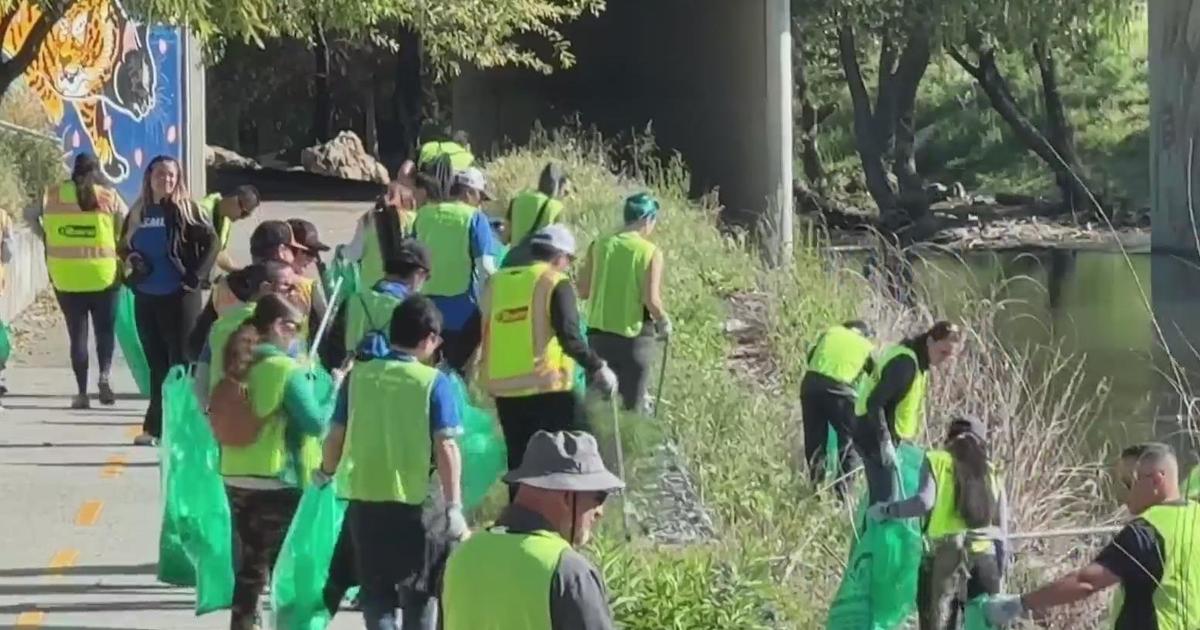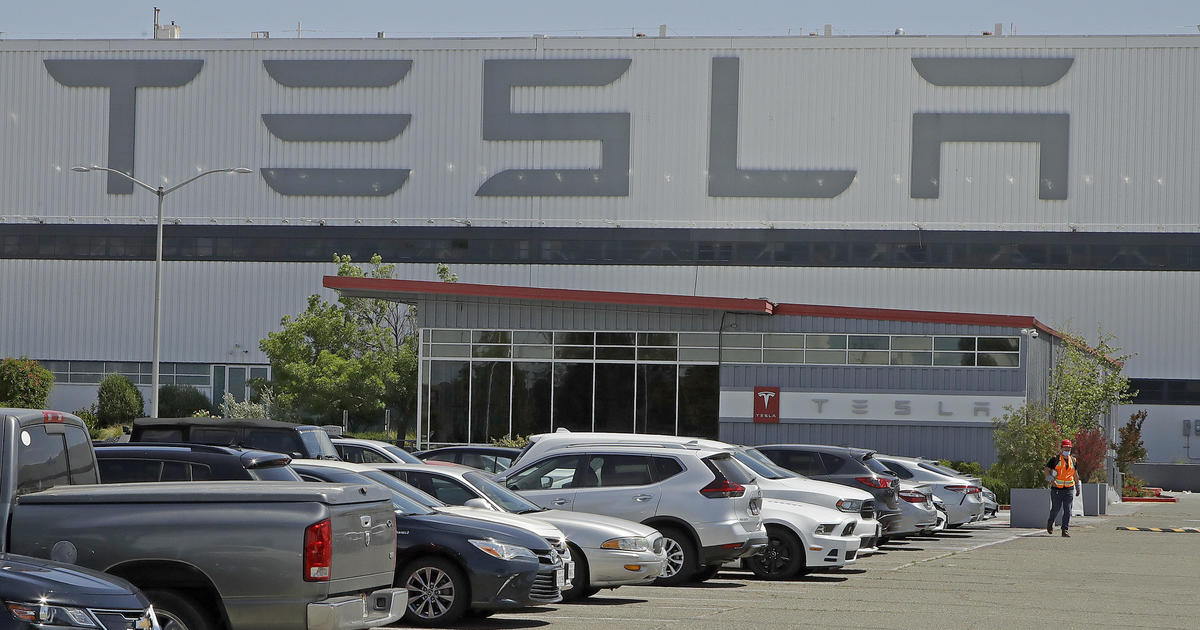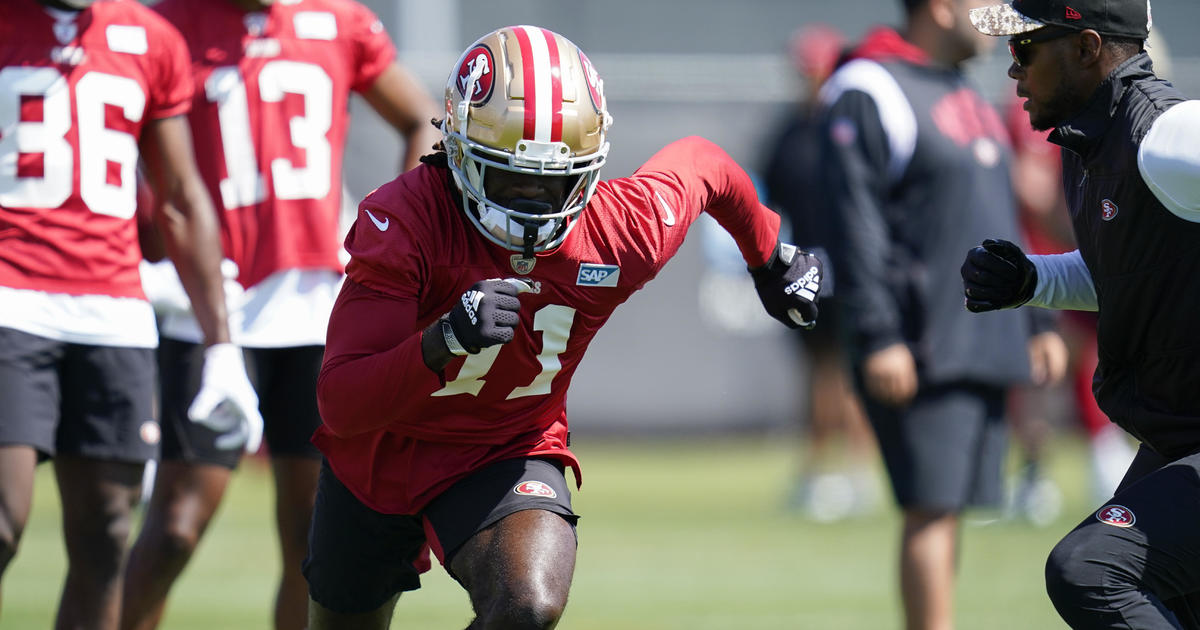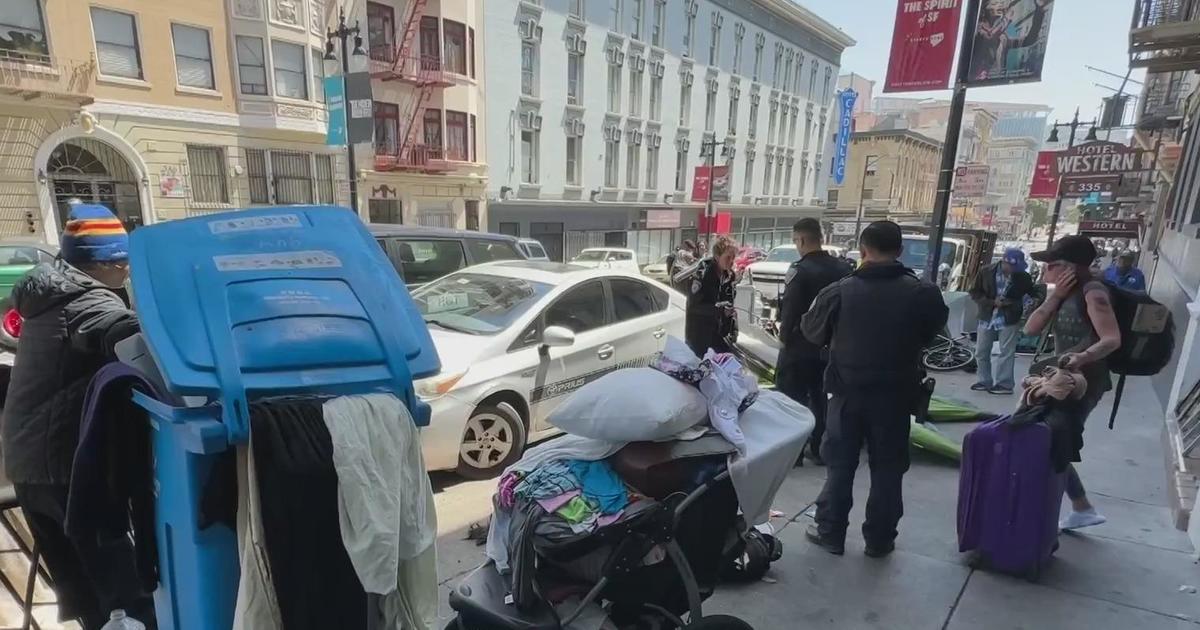COVID: San Jose Council Approves $3/Hour Hazard Pay For Workers At Large Grocery Stores
SAN JOSE (CBS SF) – Grocery store employees in San Jose will be getting a $3 per hour boost in hazard pay, but it will be about two months before they see a change in their paychecks.
On Tuesday, the San Jose City Council voted 7-3 in favor of implementing a policy that mandates chain supermarkets, large grocery stores and retail stores that sell food and employ at least 300 people nationwide to give their employees an additional $3 per hour in addition to their hourly wage for 120 days.
The reason for the hazard pay, Councilmember Sergio Jimenez said, is because grocery store employees are more at risk of contracting COVID-19, and therefore should be compensated for their sacrifices to provide essential services to the community.
"Alongside doctors and nurses, retail food workers have served the residents of San Jose while taking on tremendous risks," Jimenez wrote in his memo when he introduced the legislation.
In fact, retail workers, including grocery store employees, are five times more likely to test positive for COVID-19, according to a study published in the journal Occupational and Environmental Medicine.
Smaller corner stores, mom and pop shops and ethnic markets are not subject to the ordinance because, like many other small businesses, they are also struggling financially and probably cannot support extra pay for employees, Jimenez said.
While the legislation passed, it failed to get the eight votes required to be immediately implemented, which is why it will be in effect in about two months.
Mayor Sam Liccardo and Councilmembers Dev Davis and Matt Mahan opposed the vote, citing concerns over inadequate analysis and the subsequent possible financial impacts. They also feared that grocers would close their stores -- a move the grocery chain Kroger made in Long Beach after that city passed similar legislation.
However, Jimenez, who proposed the hazard pay bill about two weeks ago, said these were just "scare tactics" and emphasized that profits have been high enough for these companies to support pay bonuses.
"The California Grocers Association is continuing to push this narrative, causing employees to fear for their jobs instead of promoting the appreciation and compensation for the additional duress they have been subjected to," San Jose Safeway employee Allison Winsatt said in a letter to the council.
"In reality, that $1,584,200,000 asset increase Albertsons has seen throughout the pandemic as well as the $28,944,892 salary for CEO Vivek Sankaran in 2019 show that these companies will increase grocery costs simply to pad their bottom line and ensure that their profits continue to be astronomical," Winsatt continued.
When the pandemic first hit, many companies provided employees with some form of 'appreciation pay' but by May 2020, most bonuses ended. Lucky Supermarkets has been one of the only exceptions as it has continued to provide additional pay throughout the nearly 11 months of the pandemic.
Mahan agreed that the hazard pay could have benefits for employees but said it could also have serious unintentional costs.
That's why he wrote his own memo and suggested that the hazard pay only be applied to publicly traded companies to "reduce the risk that employees of smaller chains -- such as Chavez, Cardenas, Lion, Mi Pueblo, Mitsuwa, Nijiya and 99 Ranch -- do not lose jobs or hours as a result of the city policy."
Mahan's memo also suggested the hazard pay could be paid out as a bonus or increase in base salaries and would last 120 days or until the county reports it has sufficient vaccine doses and appointments for all grocery store employees who want it.
The councilmember noted that those changes could protect grocery stores from closing in lower-income neighborhoods "that tend not to attract the national brand, publicly-owned chains."
Liccardo echoed that sentiment and said if the city applied the hazard pay to smaller chains, the city could be "putting people in the position where you've got to lay people off or close a store."
He said, "Those are obviously outcomes that we don't want in a world where unemployment in many of our neighborhoods is double digits."
A majority of the council did not agree with the mayor and Mahan, but many amendments were made to the legislation since it was first proposed.
The council dropped the additional pay from $5 to $3 and changed the expiration to be 120 days after it goes into effect instead of it being terminated when the county's COVID-19 emergency declaration was lifted.
Jimenez said he made the compromises after hearing concerns from grocery store executives.
Vice Mayor Chappie Jones, who couldn't participate in last week's hazard pay vote because he also owned Amazon stock, sold his stock so he could vote in support of the hazard pay on Tuesday.
Councilmember Pam Foley recused herself from the vote because of a conflict of interest. Her husband owns Amazon stock and Amazon owns Whole Foods -- a grocer that would be subject to the new legislation.
With the hazard pay approval, San Jose will join Oakland, Santa Monica, Long Beach and Seattle, which passed similar legislation for grocery store employees in recent weeks.
Santa Clara County will also be voting on a similar proposal in late February to implement an hourly pay boost of $5 to grocery store and fast-food restaurant employees throughout the county except in San Jose.
© Copyright 2021 CBS Broadcasting Inc. and Bay City News Service. All Rights Reserved. This material may not be published, broadcast, rewritten or redistributed.



